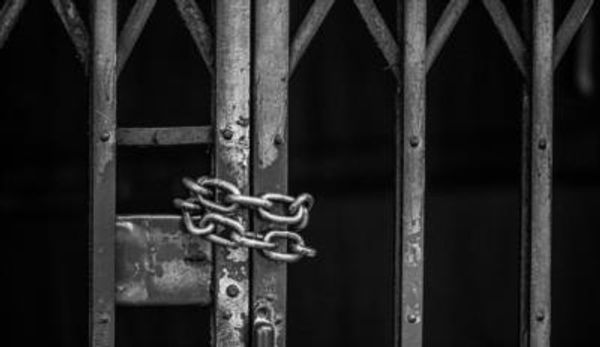For Jenna Rositani, it was the persistent barking of her normally shy and quiet dog Vinnie that stopped her from taking her life.
Thinking about who was going to look after him, feed him and love him, convinced her she needed to keep on going.
Something shifted for the 33-year-old longer term too.
"I guess after that day I had to make a real commitment to myself that I would do everything in my willpower, try anything and everything, to live. To choose to live," she said.
"And yeah, it's a battle. It's not a battle every day anymore, but it is fighting for your life all the time."
One of the things helping her in that battle is a suicide safety plan.
Research shows the most intense suicidal thoughts can pass in a time span ranging from minutes to days.
A suicide safety plan is a personalised, practical tool aimed at helping people get through that period.
Jenna, who lives just outside Melbourne, uses an app on her phone to remind her of her own warning signs — forgetting to shower, withdrawing and only communicating via text message.
It reminds her to remove anything she could use to harm herself from her home and reach out to her loved ones.
It reminds her to keep going in memory of her brother Luke, who died by suicide in 2015, two months after her father died of bone cancer.
And for comic relief — it reminds her she wants to get one up on a family member she doesn't particularly like.
"That's one of my reasons, to outlive him," she laughs.
"I haven't experienced the black hole for quite a while now… like a real black funky hole."
"But [when I do] I get to a point where I'm just like, no, f*** this, I'm gonna change my attitude. And that's when I'll look at the app or go have a shower or that sort of thing."
She says the plan is not only empowering for herself, but also for her Mum and her wife, who have a copy.
"It kind of takes out the awkwardness of communicating those things to me. Because it's almost like saying 'Well, no, actually it's written down here, here it is. I've given you permission [to talk about it]," she said.
"And I haven't come across anything else like that."
'We make a lot of plans to keep ourselves safe'
Twenty-year-old Grace Sholl, from Logan near Brisbane, likens it to having a plan in case of fire.
"It's the same way you manage anything … the same way you make a plan about who's the designated driver tonight? You know, who's going to keep an eye on the drinks to make sure we're safe?" she said.
"We make a lot of plans to keep ourselves safe … it's just like that."
Grace has been having suicidal thoughts for most of her life, first coming when she was eight years old and getting much worse in her teenage years.
It was a school counsellor who asked her the simple question: "What can we do to keep you safe right now?"
It wasn't going to fix everything, but it aimed to keep her living.
Grace's plan has a list of loved ones and organisations she can call, reminders to sit in the sun with her cat and enjoy her mother's beautiful garden.
"I've had one attempt in 12 years of suicidal thoughts, which I think speaks to the effectiveness of safety planning," she said.
"I'm pretty rational … but in that moment all you can think about is how much you hurt. You're overwhelmed by your own pain, the depths of it."
"It's a reminder that there are some little things in life that give it meaning."
Safety plans can 'reduce the intensity of suicidal thoughts'
Despite a broader conversation around suicide and more money for mental health services over the past 10 years, suicide rates have increased by about 15 per cent.
Annual suicide deaths outstrip the road toll.
Beyond Blue CEO Georgie Harman said most people experiencing suicidal thoughts who came to the organisation for help didn't know about suicide safety planning – even though it was a proven prevention tool.
"The research shows that people can really reduce the intensity of suicidal thoughts by using a safety plan," she said.
"We know that around 65,000 suicide attempts happen every single year. We know that hundreds of thousands of people think about taking their lives."
"And that's the point that we've got to intervene, we've got to put practical tools in people's hands."
She says people with suicidal ideation will not necessarily have any other mental health issues.
"The three greatest risk factors, for example, are a history of attempts or self-harm in an individual, but also really significantly relationship breakdown … poverty, use of drugs and alcohol … insecure employment, you know, job loss, those kinds of things," she said.
"That's why suicide is not just a health or mental health issue, it's an issue that is about all parts of our lives."
Conversations can 'protect someone's life'
Both Grace and Jenna encourage people at risk of suicide to get a plan in place.
And they encourage the family and friends of people who are struggling to address the issue head on.
"You know, I've had people say the wrong things [to me] in the past, but at least they acknowledged that I was suicidal, they acknowledged that I was in pain," said Grace.
"Simply sitting down and saying: 'Well, what can we do? How would you like us to support you?'"
"Having those kinds of conversations can protect someone's life."







